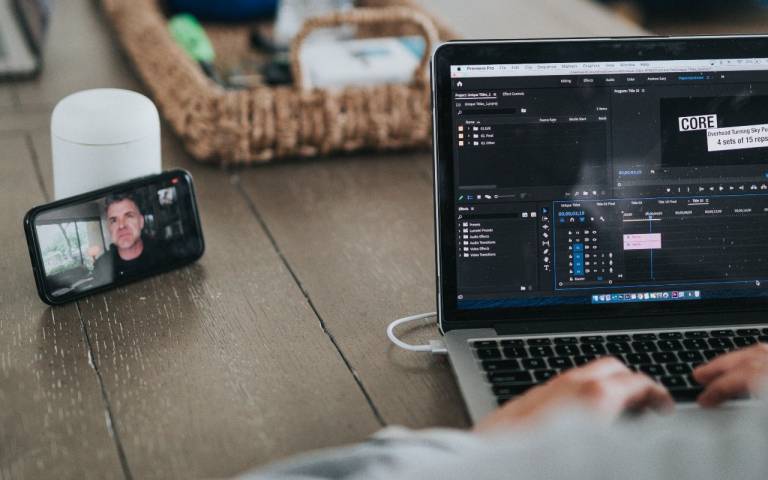Conducting remote fieldwork using video conference calls
Nicole Brown, IOE, UCL's Faculty of Education and Society, shares how she tackled remote fieldwork using video conferencing.

4 November 2020
COVID-19 means that many student researchers who conduct in-person fieldwork are now faced with the challenge of learning new methods so that they can (re)start their research.
At the same time, those of us who teach research methods and fieldwork skills, or have a module with a fieldwork element, are also working to move this teaching online.
Some of us may feel a need to upskill and learn new ways of researching using remote fieldwork methods, so that we can pass this on to our students. My research focus is on the experience of disclosure of disabilities, chronic illnesses and/or neurodiversities in doctoral education. I have been undertaking data collection via video-conferencing interviews long before the switch to remote fieldwork. I'm happy to share my top tips of this approach below.
Introduction of online interviews
Online interview methods using video-conference calls are conversations using any one of the commonly available platforms. Two of the distinguishing features of an online interview are:
- the role of technology facilitating real-time co-presence and interactivity; and
- the approach the interviewer takes to build rapport and curate the conversation (Maddox 2020).
Participants can take part in an interview on their mobile phone or laptop using programmes such as:
- Skype
- Zoom
- Microsoft Teams and
- other audio-visual interfaces.
Student researchers can also make use of the use of chat and other visual interactivity features to enhance the interview. They can also easily record the interview - with the relevant permissions from the subject.
Top tip: Your planning depends on the functionality of the video-conferencing platform. Be sure to explore and test them in advance to design your interview approach.
I have used Skype with the recording software, Evaer. I have also used Zoom with its integrated recording function. Both worked very well.
A more inclusive approach
My approach to interviewing follows the concept of a data traveller, where the interview is an exchange of views between the researcher and the participant to make sense of experiences together (Brinkmann and Kvale, 2015).
Remote interviews offer flexibility to our research participants, particularly those who may find it challenging to commit to a specific face to face meeting time and place.
Scheduling interviews via video-conference calls means there is much more flexibility around timings, as some participants want to have their interviews carried out during working hours, whereas others specifically asked for after-working hours.
If someone does not feel well on the day of the interview, it is easy to cancel and reschedule because nobody who is involved in the interviewing process has to feel guilty for putting extra pressure on the other party. Participants tend to feel guilty and uncomfortable to cancel if I as a researcher embarked on a train journey of two hours or more to see them. Collecting the data remotely therefore is a conscious act of care for the participants.
 Close
Close

